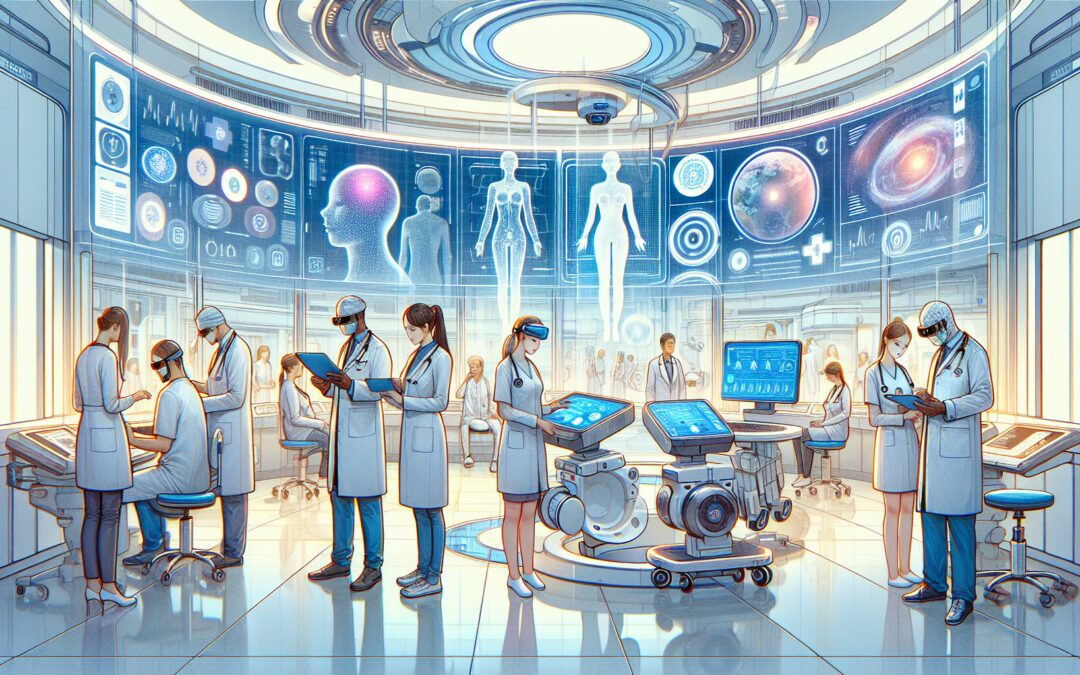The healthcare industry is continuously evolving, driven by the imperative of improving patient care and outcomes. As medical science advances and technology integrates deeper into healthcare practices, innovative approaches are not only enhancing treatment efficacy but also transforming the patient experience. This article explores some of the groundbreaking strategies that are revolutionizing patient care today.
Telemedicine: Bridging the Gap in Healthcare Access
Telemedicine has emerged as a critical tool in extending healthcare access to underserved and remote populations. Through the use of digital communication technologies, patients can now consult with healthcare providers from the comfort of their homes, eliminating geographical barriers. Telemedicine not only improves convenience for patients but also reduces the burden on healthcare facilities, allowing for more efficient allocation of resources.
Moreover, the COVID-19 pandemic has accelerated the adoption of telemedicine, demonstrating its viability and effectiveness. Virtual consultations, remote monitoring, and electronic prescriptions have become integral components of patient care, highlighting the potential for telemedicine to become a staple in the healthcare system.
Artificial Intelligence and Machine Learning in Diagnostics
Artificial Intelligence (AI) and machine learning are revolutionizing diagnostics, offering unprecedented accuracy and speed. AI algorithms can analyze medical images, pathology slides, and genetic data more quickly and accurately than ever before, aiding clinicians in early detection and diagnosis of diseases such as cancer, heart conditions, and neurological disorders.
Machine learning models can also predict patient outcomes and potential complications by analyzing vast amounts of historical data, enabling personalized treatment plans. These technologies not only enhance diagnostic precision but also reduce the time to diagnosis, which is crucial for many conditions.
Personalized Medicine: Tailoring Treatments to Individual Needs
Personalized medicine is transforming the one-size-fits-all approach to healthcare. By considering a patient’s genetic makeup, lifestyle, and environmental factors, healthcare providers can develop highly tailored treatment plans. This approach has shown significant promise, particularly in oncology, where targeted therapies based on genetic profiles have led to more effective and less toxic treatments for cancer patients.
Pharmacogenomics, the study of how genes affect a person’s response to drugs, is another aspect of personalized medicine that is gaining traction. This scientific field aims to optimize drug efficacy and minimize adverse effects, ensuring that patients receive the most appropriate medications based on their genetic profiles.
Wearable Technology: Empowering Patients to Take Charge
Wearable technology, such as smartwatches and fitness trackers, is empowering patients to take an active role in managing their health. These devices can monitor vital signs, track physical activity, and even detect irregular heart rhythms, providing valuable data that can be shared with healthcare providers. By enabling continuous health monitoring, wearable technology helps in early detection of potential health issues, promotes preventative care, and encourages healthier lifestyles.
Further innovations in wearable technology are pushing boundaries with devices capable of measuring blood glucose levels for diabetes management, detecting sleep apnea, and monitoring respiratory conditions, all of which contribute to more proactive and informed patient care.
Robotics and Automation in Surgery
Robotics and automation are revolutionizing surgical procedures, offering unparalleled precision, reduced invasiveness, and shorter recovery times. Robotic-assisted surgery allows surgeons to perform complex procedures with enhanced dexterity and control. Minimally invasive techniques reduce trauma to the body, resulting in less pain and faster recovery for patients.
Automation in surgery also includes the use of sophisticated tools that enhance the surgeon’s capabilities, such as automated suturing devices and advanced imaging techniques that provide real-time, high-resolution views of the surgical area. These advancements are leading to better surgical outcomes and increased patient safety.
Conclusion: The Future of Patient Care
The innovative approaches discussed in this article are just the beginning of a transformative journey in patient care. As technology continues to integrate with medical science, the potential for improving patient outcomes grows exponentially. The future of healthcare lies in the seamless collaboration between human expertise and technological advancements, creating a more efficient, effective, and patient-centered healthcare system.
Ultimately, these innovations aim to not only treat illnesses but also prevent them, enhancing the quality of life for patients worldwide. As we move forward, continued investment in and adoption of these cutting-edge strategies will be crucial in realizing the full potential of revolutionized patient care.


